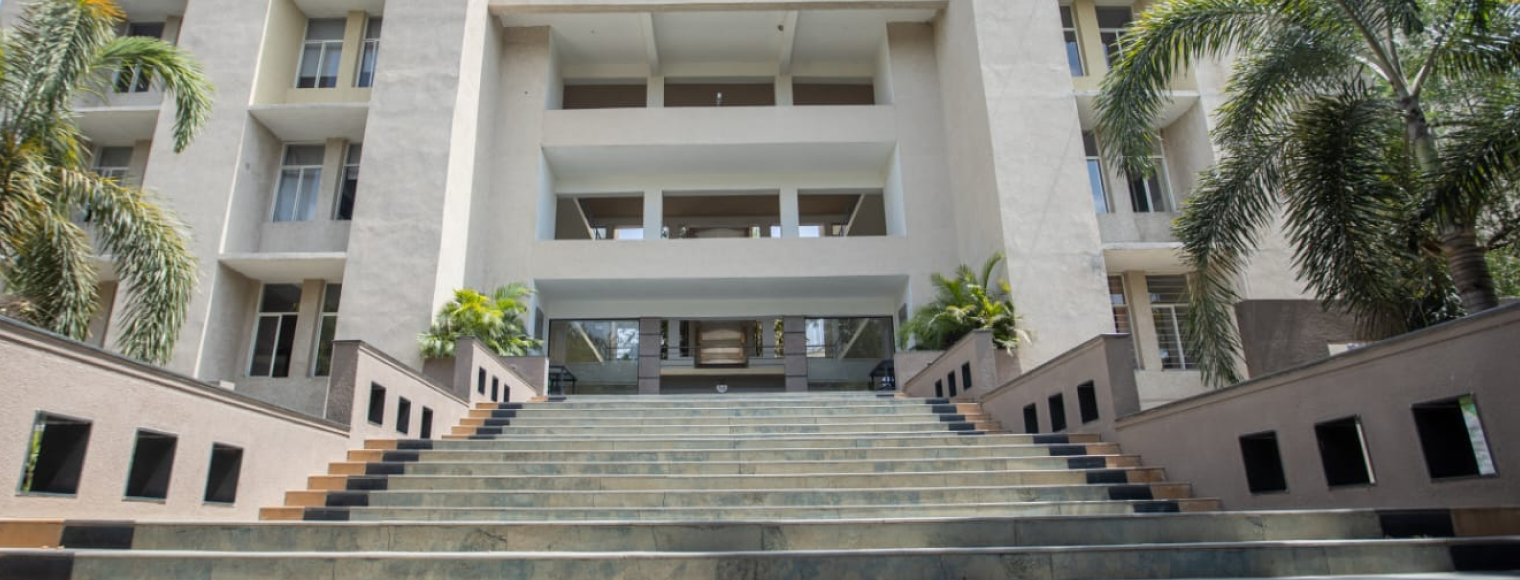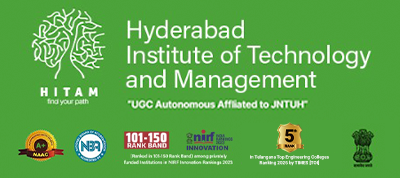Department of Computer Science and Engineering
The Department is experiencing a phase of dynamic growth and opportunity, driven by technological advancements and recognized for its excellence.
Course Overview
The department is experiencing rapid growth, driven by technological advancements and its recognition for excellence. This creates abundant opportunities for innovation, research, and development, offering students and faculty the chance to excel in the evolving tech landscape.

Our Vision
To be a competent department of Computer Science and Engineering, committed to nurturing critical thinking, innovation and multidisciplinary knowledge in students to drive technological progress and contribute meaningfully to society.
Our Mission
To build a strong academic foundation in computer science and engineering, complemented by practical learning that enhances analytical thinking, creativity, and effective problem-solving skills.
To equip students with emerging tools and technologies while cultivate ethical values, teamwork, communication, and leadership to prepare them for successful professional careers.
To promote multidisciplinary research and innovation that empowers students to develop responsible, impactful technological solutions addressing societal and global challenges.
Program Educational
Objectives (PEOs)
Build careers in software roles such as development, testing, DevOps, data analytics, and cybersecurity by utilizing core engineering and programming skills.
Pursue higher education or research in computing and allied fields through a strong academic foundation and a passion for learning.
Initiate or contribute to entrepreneurial and innovation-driven ventures with leadership, ethics, and a focus on societal needs.
Program Specific
Outcome Statements (PSOs)
To use mathematical methodologies to crack problem using suitable mathematical analysis, data structure and suitable algorithm
To grasp the software development lifecycle and methodologies of software systems.
To interpret the fundamental concepts and methodology of computer systems.
Program Outcomes
Apply the knowledge of mathematics, science, engineering fundamentals, and an engineering specialization to the solution of complex engineering problems.
Identify, formulate, review research literature, and analyze complex engineering problems reaching substantiated conclusions using first principles of mathematics, natural sciences, and engineering sciences.
Design solutions for complex engineering problems and design system components or processes that meet the specified needs with appropriate consideration for the public health and safety, and the cultural, societal, and environmental considerations.
Use research-based knowledge and research methods including design of experiments, analysis and interpretation of data, and synthesis of the information to provide valid conclusions.
Setting the highest ethical standards for self and others in everything we do. Our actions, behaviors and conduct must always generate trust and confidence in our stakeholders.
Create, select, and apply appropriate techniques, resources, and modern engineering and IT tools including prediction and modeling to complex engineering activities with an understanding of the limitations.
Understand the impact of the professional engineering solutions insocietal and environmental contexts, and demonstrate the knowledge of, and need for sustainable development.
Apply ethical principles and commit to professional ethics and responsibilities and norms of the engineering practice.
Function effectively as an individual, and as a member or leader in diverse teams, and in multidisciplinary settings.
Communicate effectively on complex engineering activities with the engineering community and with society at large, such as, being able to comprehend and write effective reports and design documentation, make effective presentations, and give and receive clear instructions.
Demonstrate knowledge and understanding of the engineering and management principles and apply them to one’s work as a member and a leader of a team, in managing projects in a multidisciplinary environment.
Recognize the need for, and have the preparation and ability to engage in independent and life-long learning in the broadest context of technological change.
Our Faculty
Dr. M. Rajeshwar (Ph.D)
24 Years ExperienceAssociate Professor
Machine Learning
Mr. G. Chandra Shekhar (M.E/M.Tech)
19 Years ExperienceAssistant Professor
Mr. Thambi Joseph (M.E/M.Tech)
18 Years ExperienceAssistant Professor
Mr. B. Surendra Reddy (M.E/M.Tech)
16 Years ExperienceAssociate Professor
Mr. T. Raghavendra Gupta (M.E/M.Tech)
15 Years ExperienceAssistant Professor
Mr. Vadla Navakishore (M.E/M.Tech)
9 Years ExperienceAssistant Professor
Mr. Shaik. Meer Subhani Ali (M.E/M.Tech)
9 Years ExperienceAssistant Professor
Mr. G. Ravi (M.E/M.Tech)
7 Years ExperienceAssistant Professor
Dr. S. Arvind (Ph.D)
33 Years ExperienceProfessor
Adhoc Networks
Ms. K. Krishna Jyothi (M.E/M.Tech)
9 Years ExperienceAssistant Professor
Ms. K. Veena (M.E/M.Tech)
5 Years ExperienceAssistant Professor
Mr. K. Ravi Kumar (M.E/M.Tech)
15 Years ExperienceAssistant Professor
Mr. D. Mani Kanta (M.E/M.Tech)
5 Years ExperienceAssistant Professor
Mr. Bhaskar Das (M.E/M.Tech)
8 Years ExperienceAssistant Professor
Dr. P. Padmaja (Ph.D)
15 Years ExperienceProfessor
Software Engineering
Ms. C. Surekha (M.E/M.Tech)
8 Years ExperienceAssistant Professor
Dr. Sathish Kumar (Ph.D)
10 Years ExperienceAssociate Professor
MANET
Mr. Dharmendra Kumar Roy (M.E/M.Tech)
10 Years ExperienceAssociate Professor
Ms. Richa Tiwari (M.E/M.Tech)
3 Years ExperienceAssistant Professor
Ms. Zeenath Jaha Begum (M.E/M.Tech)
8 Years ExperienceAssistant Professor
Dr. SV Hemanth (Ph.D)
14 Years ExperienceAssociate Professor
Deep Learning
Dr M V A Naidu (Ph.D)
14 Years ExperienceAssistant Professor
Machine Learning and Deep Learning
Ms. Jahanara Begum (M.E/M.Tech)
3 Years ExperienceAssistant Professor
Dr. David Raju , Ph.D in CSE
24 Years ExperienceAssociate Professor
Mr. Madhu Guda (M.E/M.Tech)
3 Years ExperienceAssistant Professor
Mr. Periyaswamy (M.E/M.Tech)
14 Years ExperienceAssistant Professor
Mrs. A Devi (M.E/M.Tech)
0.3 Years ExperienceAssistant Professor
Labs
| Name of the lab | Location & Carpet area | List of equipment | Total cost of the lab |
|---|---|---|---|
| ups -1 | |||
| S09 | 132 sq (11X12) | SYSTEMS -60 | Rs. 13,15,100/- |
| T17 | 100 sq (10X10) | SYSTEMS -60 | Rs. 9,45,375/- |
| ups -1 | |||
| client systems-30 | |||
| Server-1 | |||
| T19 | 132 sq (11X12) | SYSTEMS -30 | Rs. 6,28,300/- |
| ups-1 | |||
| h/w kit-1 | |||
| client systems-30 | |||
| server-1 |

